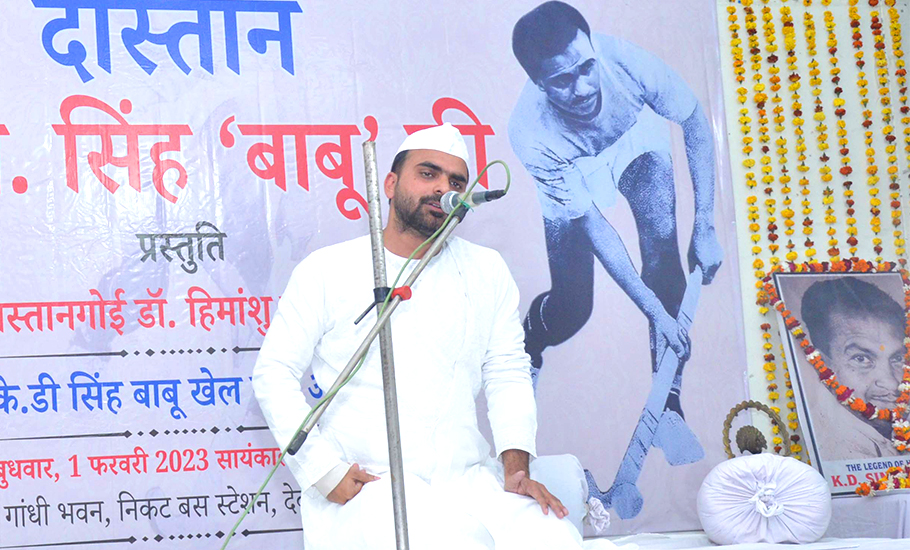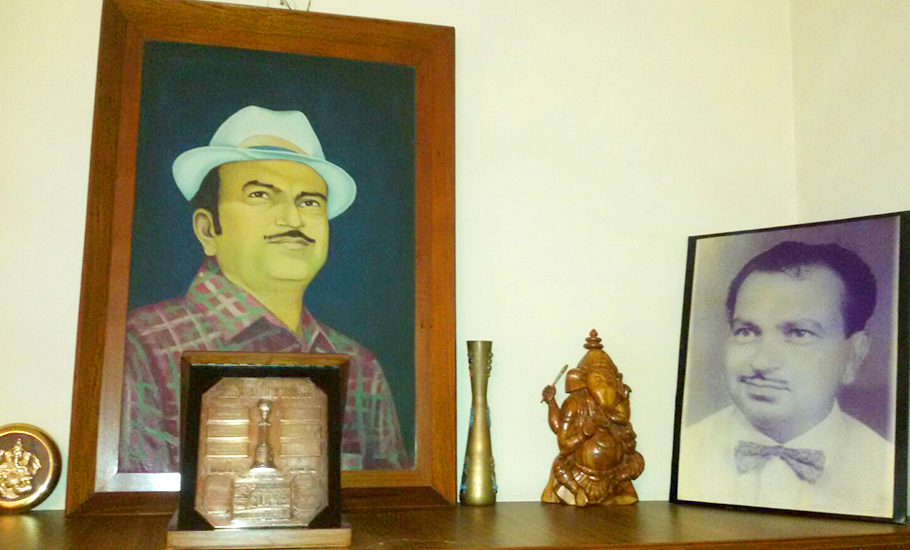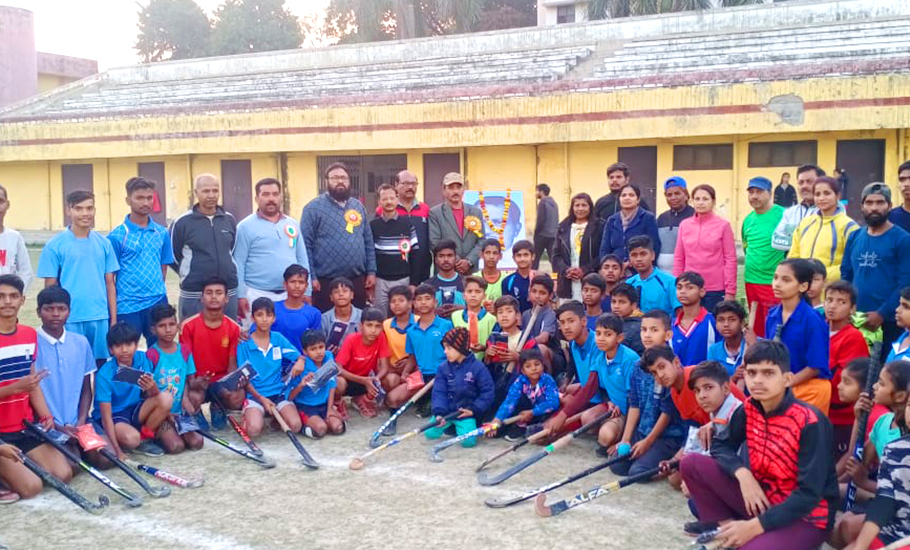
- Home
- India
- World
- Premium
- THE FEDERAL SPECIAL
- Analysis
- States
- Perspective
- Videos
- Sports
- Education
- Entertainment
- Elections
- Features
- Health
- Business
- Series
- In memoriam: Sheikh Mujibur Rahman
- Bishnoi's Men
- NEET TANGLE
- Economy Series
- Earth Day
- Kashmir’s Frozen Turbulence
- India@75
- The legend of Ramjanmabhoomi
- Liberalisation@30
- How to tame a dragon
- Celebrating biodiversity
- Farm Matters
- 50 days of solitude
- Bringing Migrants Home
- Budget 2020
- Jharkhand Votes
- The Federal Investigates
- The Federal Impact
- Vanishing Sand
- Gandhi @ 150
- Andhra Today
- Field report
- Operation Gulmarg
- Pandemic @1 Mn in India
- The Federal Year-End
- The Zero Year
- Science
- Brand studio
- Newsletter
- Elections 2024
- Events
- Home
- IndiaIndia
- World
- Analysis
- StatesStates
- PerspectivePerspective
- VideosVideos
- Sports
- Education
- Entertainment
- ElectionsElections
- Features
- Health
- BusinessBusiness
- Premium
- Loading...
Premium - Events

Remembering KD Singh Babu, who could hunt with the same ease as dribble the hockey stick for Olympic gold

There was a sense of jubilation all around. The nondescript town of Barabanki had poured onto the streets, dotting both sides of the road, to welcome its hero, who was returning after winning an Olympic gold. The hero was riding in an open jeep being driven by none less than the district magistrate. Tearing through the din of loud cheers, came a voice “Wah bhaiya, kamal kar diya (brother,...
There was a sense of jubilation all around. The nondescript town of Barabanki had poured onto the streets, dotting both sides of the road, to welcome its hero, who was returning after winning an Olympic gold. The hero was riding in an open jeep being driven by none less than the district magistrate. Tearing through the din of loud cheers, came a voice “Wah bhaiya, kamal kar diya (brother, you have done the unthinkable).”
The hero asked the district magistrate to stop the vehicle, alighted and went straight to the man whose voice he could single out from the din. As people looked on in anticipation of what would follow, the hero opened his arms and hugged the man, a rickshaw-puller who had helped the hero during practice.
The year was 1952. And the hero Kunwar Digvijay Singh ‘Babu’, who today stands immortalised in Uttar Pradesh’s capital city Lucknow, in the KD Singh Babu Stadium and KD Singh Babu Marg in Barabanki, was returning to his hometown, after winning the gold medal at the Helsinki Olympic. The legendary two-time Olympic hockey gold medallist was also a sharpshooter — on the hockey field and off it too. The former India captain scored a glut of goals with a hockey stick, and hit bullseye as a hunter, killing birds and animals – including lions and crocodiles — with his blazing rifles. Unfortunately, in 1978 he died by suicide after shooting himself.
As Babu’s year-long birth centenary celebrations concluded in his home town Barabanki city, 27 kilometres east of Lucknow, on his 101st anniversary on February 2, his close friends and admirers recalled his booming rifles as well. One of them went to the extent of saying that Babu, with some serious practice, might have won an Olympic medal in shooting too – in addition to the two Olympic gold medals won in 1948 and 1952.

Babu’s centenary celebrations started on February 2 in 2022 and concluded with a function in Barabanki where the legend’s sons, relatives, and friends recalled the player and the man.
Starting the year-long 100th birth anniversary celebrations on February 2 last year, every second day of the 12 previous months an event was organised to remember the versatile inside-right player, informed Salahuddin Kidwai, whose family relations with Babu’s clan go back three generations. “The concluding function was organised at Gandhi Bhawan here in Barabanki where Lucknow’s famous dastango, Himanshu Bajpai, narrated Babu’s story in his typical style,” 75-year-old Kidwai, a former Lucknow University hockey captain, told The Federal.
Babu’s hunting partner
While Kidwai, despite being 26 years younger to Babu, has the advantage of the family connection to know the hockey exponent better than others, the legend’s regular hunting partner was Mohammed Arif, who at 90 distinctly remembers his voyages with the legend.
While Arif celebrated when Babu won Olympic gold medals as India vice-captain in 1948 in London and as captain in Helsinki in 1952, his fondest memories of Babu, however, are of the time he spent with Babu as his hunting partner. “For the first time, I went hunting out of curiosity. After a few times, I started going to his place from where we would go together on Sundays. Then it became a routine for us. He would insist that I also take some of the birds that he would kill, but I would opt for the fish only,” Arif told The Federal at his home in Rudauli, in Ayodhya district, 60 kms from Barabanki, which he left in 1964.
“He had a brilliant aim and he would shoot down flying birds. Sometimes, we would go fishing in the large ponds about 10-12 kms away from his Barabanki home. He would take me along on his bicycle,” reminisced Arif.
Arif doesn’t tire sharing the qualities his dear friend possessed. “He was a gem of a person. He was pure and honest and very good at conversations. Babu would make everyone laugh a lot. All these qualities endeared me to him,” he said.
Shooting single-handedly
Kidwai believes what made Babu excel at shooting was his quick reflexes. “In shooting, you have to make decisions instantaneously, and he excelled at it,” says the full-back who captained Lucknow University to the national title in 1973.

“Apart from birds, Babu would hunt lions and crocodiles, too. When he competed at the 1952 Olympics as India’s captain, the suitcase that he carried to Helsinki was made of the skin of a crocodile he had killed. After all, the captain had to be a little different from the rest of the team,” says Kidwai. “He had different types of guns — 0.22 bore and 12 bore rifles etc. I forget the name of the best one he had. It was probably bought in London.”
Kidwai, as a child, was witness to an extraordinary shooting feat of Babu. “Once he had returned from hunting and was having tea. He was holding the saucer and cup and his gun was lying beside him. He suddenly heard the sound of the birds flapping their feathers close by. As the birds flew by, he in a flash fired two shots with one hand killing a few of them while holding the saucer and the cup in the other. I still remember the scene distinctly,” Kidwai recalls. “When he was appointed director (sports) Uttar Pradesh and posted in Lucknow, his fridge would be full of seasonal fruits and non-vegetarian dishes.”
Player, coach, administrator
While Babu dabbled successfully in many things, he won laurels at hockey.
“Babu had a fantastic and fascinating stick work and he could mesmerise the best of defences, draw them out, and lay beautiful passes for his teammates to score. A unique characteristic of Babu was his unselfishness so far as the honour from individual scoring was concerned. He always played for the team. In other words, his skill and strategy on the field were inspired by one single objective – that his team should win,” wrote Randhir Singh Gentle, one of the handful of Indians who have won three Olympic gold (1948, 1952, 1956), about his teammate in an article.
After retiring as player, Babu turned to sports administration and coaching. Olympian Sujit Kumar is among the players indebted to Babu for inspiring them. “No praise is big enough for Babu saheb. He selected me for the Uttar Pradesh Sports Hostel, which he opened and from which 55 boys and 17 girls have gone on to represent India. Had the Sports Hostel not been there, people like us might have gone astray. His contribution to hockey, first as a player and later as an administrator, is the biggest in India. Babu deserves the Bharat Ratna,” half-back Sujit, who competed at the 1988 Seoul Olympics, told The Federal.
For Babu, sports was in the family.
“All five brothers played for Lucknow University and three of them [Babu, Kunwar Shukdeo Singh ‘Mohan’, and Kunwar Naresh Singh] for Uttar Pradesh for four-five years,” said his son Kunwar Dhirendra Singh ‘Commander’. Kunwar’s grandfather played tennis.
Different personalities, close bonds
Arif says he first met Babu at a get-together in Barabanki, and they at once hit it off, forging a solid friendship. “We formed a group and would meet daily at different places, mostly at a Haji saheb’s house in Begumganj locality. Hockey was certainly not the reason Babu and I got along well. I was far away from sports, so much so that I later started ‘hating’ hockey because of him, so to say. It’s because he would insist that I, too, should play the sport. But we still remained good friends,” he recalls laughing.
Babu would compel Arif to accompany him to watch hockey matches, if not play. “I went a few times with him, including to a girls’ match in Lucknow. At the girls’ match, he teased me, saying that those girls were better than me. He said that because he wanted me to play hockey and I would desist the idea,” shared Arif, who says Babu even helped him find a job.
After Babu started living in Lucknow, and Arif settled down in Rudauli in 1964, their group in Barabanki wouldn’t meet so regularly. “However, he would continue to visit Barabanki while I would also keep going there.”
Towels to t-shirts
Babu had a penchant for getting T-shirts stitched from cotton towels. “He would wear T-shirts made out of towels. He would buy towels and take them to one small-time tailor, Azeem, in Barabanki and make him stitch T-shirts as per his description. He would wear those T-shirts in summers. Mostly they were white,” says Arif.
Both Arif and Kidwai distinctly remember the time when Babu returned to Barabanki after winning his second Olympic gold in 1952.
“The celebrations were so grand and spread across Barabanki that I haven’t seen any such event – simply fabulous. Large gates were erected on all the roads and hockey sticks in criss-cross positions were displayed on those. People came out on the roads to see their hero. The then Uttar Pradesh governor, Kanhaiyalal Maneklal Munshi, himself came to Barabanki and was part of the open vehicle procession taken out in Babu’s honour,” says Arif.
On the heels of the Helsinki gold came the Helms World Trophy, a top global American prize awarded to the most outstanding sportsman in each continent, for Babu in 1952. He was the first Asian athlete to win it.
Babu, who represented Uttar Pradesh and several other teams in domestic competitions, was also good at other sports – from gulli-danda to cricket. He once scored a double century in the now-defunct Sheesh Mahal Trophy, a summer tournament in Lucknow. In football, he represented Uttar Pradesh and was the Lucknow district golf champion for several years. He won the Uttar Pradesh singles and doubles tennis titles for seven successive years, and was good at badminton, too.
However, above all, Babu excelled in hockey, which he learnt from Mushfiquzzaman. Babu’s elder brother Naresh Singh ‘Raja’ once wrote that teachers Pandit Babu Lal Pandey and VD Pathak at Lucknow’s Kanyakubja College, which both brothers attended, took keen interest in Babu. “But the man who brought perfection in him was the late Mushfiq saheb, and to my mind the only man who understood the finer points of hockey and was undoubtedly the best coach in the country,” wrote Singh.
The government conferred Padma Shri on Babu in 1958. Unfortunately, for the Indian hockey fraternity, particularly for his family, Babu died by suicide on March 27, 1978, in Lucknow. Ironically, the same weapon that his friends and admirers believe could have won him another gold, ended his life.

Babu’s elder brothers Shukdeo Singh ‘Mohan’ and Naresh Singh ‘Raja’ had hinted a long time ago the pressure he was under. “Many times when I found him tense, I advised him to not be so emotional, as this aspect was telling on his nerves, and I asked him to tender his resignation [as director sports],” Shukdeo wrote in an article. “But his innate sense of responsibility towards games, players, and the post he held restrained him either from resigning or going on long leave.”
(The author has covered sports for over three decades, based in New Delhi.)
